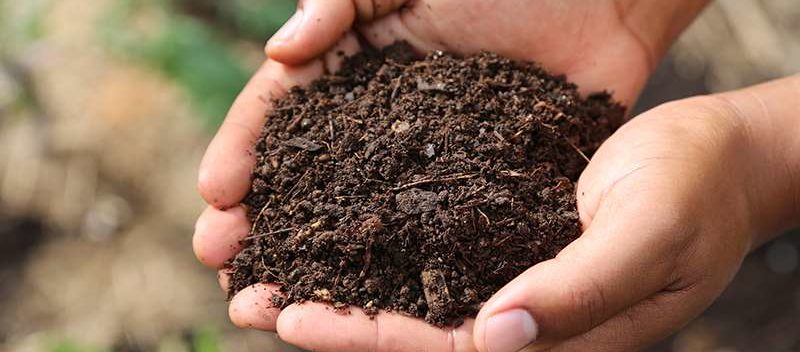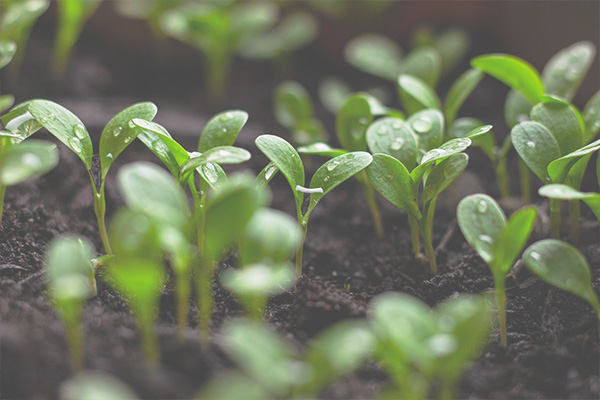
What are nutrient dense foods?
We all know that fruits, vegetables and grains are bursting with nutrients that our bodies need to stay healthy. But, did you know, that not all produce is created equally in terms of nutrient density, even when comparing apples and apples. In other words, one apple may have more nutrients than another identical looking apple!
Here is some basic reasoning when thinking about the nutrient density of our foods:
- Our bodies encourage us to eat healthy foods. Nutrient dense foods naturally taste better because they have the nutrients our bodies need and are nourishing our bodies. Don’t be fooled by flavors and additives; these are are added to trick our brains.
- For our bodies to get the nutrients they need, the nutrients must be in the plants we eat (or in the plants that animals eat).
- To get nutrients into plants, the nutrients must be ready available in our soils so the plant can take them up easily.
- Plants (and humans) that have all the nutrients they need are less susceptible to disease and pests.
The problem with today’s farming and gardening practices

To meet demands for cheap, abundant food modern agriculture has become increasingly dependent on fertilizers and chemicals. The overuse of chemicals is destroying the natural biological life in our soils. Simply put, using these chemical fertilizers in the garden effectively creates dead soil, resulting in plants that become dependent on more and more of these fertilizers simply to survive.
As we lose this life in our soils, it becomes harder for plants to access all the minerals and nutrients they need. In turn, we lose vital nutrients and minerals from our foods and from own bodies. This is obviously bad news for our health and well-being.
Unhealthy gardening practices
Many home gardeners, assume that homegrown produce must naturally be the healthiest and most nutritious food possible. Unfortunately, this is not necessarily the case. When nutrients and minerals are not available to your plants, then your lovingly grown produce will not be as bountiful in nutrients as you may hope.
Most gardeners focus on NPK values and organic matter in their soil. Whilst these are undoubtedly important, they fail to consider the importance of the soil food web and the prevalence of trace materials. As noted above, adding chemical fertilizers to increase NPK values can initiate a vicious circle. The chemical fertilizers damage the essential life in the soil and create soil and plants that are reliant on adding more fertilizers.
Adding home compost is one of the best things that any gardener can do to increase necessary organic matter. However, if your plants are lacking in nutrients due to deficiencies or imbalances in the soil, then compost made from these plants will also be lacking in the same nutrients. When this home compost is added to the soil, those deficiencies will remain and likely become magnified.
So how do we make sure that our homegrown produce is jam-packed with as many nutrients as possible? Growing nutrient dense produce starts with a healthy and nutrient rich soil allowing the plants access to all the nutrients they need.
How to grow nutrient dense plants
Let’s assume that you have the basics of soil management in hand; watering, mulching, and adding organic matter. In addition to these basics, you can follow these 2 simple steps to enhance the nutrient density of your homegrown produce.
1. Balance calcium levels
Calcium plays a crucial role in all plant and animal life. It is essential for plant growth and nutrition, as well as cell wall development. Calcium in our soils helps to maintain chemical balance in the soil, reduces soil salinity, improves water penetration, and contributes to beneficial microbe activity.
Plants grown in calcium-depleted soils have difficultly absorbing nutrients, making them less nutritious and robust.
The best way to find out if your soil has enough calcium is to do a soil test. Most plants thrive with a pH level between 5.5 and 7.5. The optimal pH is usually between 6 and 6.5, so if your soil measures above or below this, it may be a good idea to do something to it to improve the nutritional uptake for your plants.
2. Enhance your soil’s biology

Soil is much more than some simple dirt for your plants to grow in. Soil is a complex, living ecosystem that is home to an astounding array of microbes, enzymes, insects and worms. The soil food web forms a crucial symbiotic relationship with your plants’ roots giving your plants access to essential nutrients and minerals in your soil.
Essentially the soil is your gardens’ heart, lungs, and immune system. Unhealthy soil will create less healthy produce. In turn, you will be missing out on potential health benefits when you eat the under-par produce. It cannot be overstated how important healthy garden soil is. You are essentially eating your soil with every bite of homegrown produce.
Soil additives such as compost and supplements can be useless if the crucial life in the soil is lacking.
Benefits of healthy soil
When your soil’s biology is strong and healthy, your plants are more resistant to pests and disease. The purpose of insects and diseases in nature is to target organisms that aren’t fit for reproduction. Grubs and larvae have very simple digestive systems and, as such, are only able to digest simple carbohydrates. The cells of healthy plants comprise complex carbohydrates and complete proteins making them inedible to pests.
In addition to increased pest resistance, plants grown in healthy soils can store excess energy in the form of fats (lipids). These lipids help the plant develop stronger, thicker cell walls making the plants more resistant to airborne pathogens such as blight and mildew.
Finally, plants with high levels of lipids can build essential oils. These essential oils are valuable to the plant and act as a plants immune system. With these essential oils the plant becomes resistant even to insects with complex digestive systems. These essential oils are also hugely beneficial to us. Growing crops containing these essential oils should be the goal of all gardeners and farmers.
Really its an easy win-win situation. Plants grown in healthy soils are more resistant to pests and diseases so can produce higher yields of higher quality produce with higher nutrient density.
Bokashi composting is one of the best (arguably, the best) way of quickly and effectively enhancing and supporting a healthy soil food web.
Other posts you might like to read:
The benefits of microbes in your garden
Benefits of bokashi composting
Building a thriving soil food web


Why 2 buckets? In past years I only used 1, and it was adequate. I’m now living alone in a senior residence with less space but would like to continue to Bokashi.
Absolutely you can bokashi compost with only 1 bucket. Most people find that 2 buckets work well, as one is fermenting while you are filling the other one. But if space is limited, then you can keep bokashi composting with just one bucket. Composting with only one bucket can make it harder to continuously collect and compost your food waste. But here are a couple of suggestions to make bokashi composting work well with one bucket:
– If you only produce very small amounts of food waste then you could store your food waste in the freezer whilst the bokashi bucket completes its two weeks fermentation. After two weeks, bury your fermented pre-compost as usual. Then add your collected food waste to your bokashi bucket. You will need to add in 1 inch layers and sprinkle each layer with 1 or 2 heaping tablespoons of bokashi bran. Continue to add your food waste on a daily basis until your bokashi bucket is full. You will then need to start storing food waste in your freezer again whilst the contents of your bokashi bucket ferments.
– Alternatively, you may not need huge amounts of bokashi compost. Simply use your bokashi bucket as and when you need to make the right amount of compost for you.
Hope that helps and happy composting 🙂